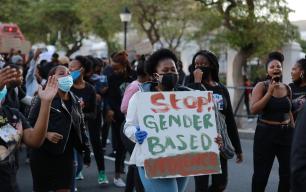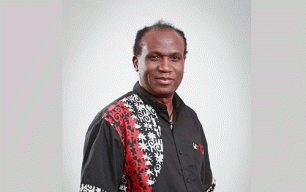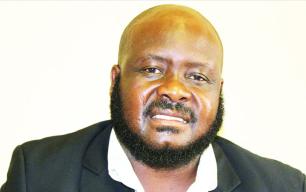Namibians reflect on Trump’s world peace walk

By Stefanus Nashama
Following United States President Donald Trump’s visit to Israel for the release of hostages from Gaza under a ceasefire agreement between Israel and Hamas, global and local reactions have poured in, with political analysts and lawmakers hailing the development as a potential turning point for peace in the Middle East.
Trump declared on Monday that the war between Israel and Hamas was over, saying the broader Middle East could now look forward to “peace and prosperity.” “This took 3,000 years to get to this point, can you believe it? And it is going to hold up too,” Trump said confidently as he signed the ceasefire deal in Egypt the same day.
He acknowledged, however, that achieving lasting peace in the region would be a “long and arduous process,” despite skepticism surrounding the United States’ foreign policy record and the perception that many conflicts have been driven by democratic nations. Former lawmaker Maximalliant Katjimune took to social media to commend Trump’s efforts, predicting that the U.S. president could be a strong contender for next year’s Nobel Peace Prize.
“I am watching the peace ceremony in Egypt and almost the entire Middle Eastern leadership is behind Trump for the Nobel Peace Prize,” Katjimune stated. He added that Trump appeared “completely in charge of the room,” commanding respect from regional leaders and demonstrating renewed American influence in global diplomacy.
“In the most unexpected of ways, Trump does seem to have further cemented and entrenched American hegemony during his second presidency. Interesting,” Katjimune observed. Political analyst Sakaria Johannes said the ceasefire could mark a historic shift in regional geopolitics, suggesting that sustained stability in Gaza could open doors for economic cooperation and reconstruction.
“Trump is not interested in wars,” Johannes said.
He added that while democratic nations are often blamed for war-related damages, the real issue lies in the global powers influencing such conflicts. “It is not really a question of who causes the war damages, but rather who is influencing these wars,” he said. However, political commentator Ben Mulongeni held a different view, arguing that Trump’s ceasefire was not the end of the war but merely a pause in hostilities.
“That agreement was just to stop the fight, not to end the war. The conflict could resume at any time,” said Mulongeni.
He further accused the United States of openly supporting Israel, asserting that a sustainable peace would require a two-state solution, not unilateral declarations of victory.
“What matters is the two-state policy to end the war, not for Trump to claim the war is over,” he said. Mulongeni also criticised what he described as America’s selective approach to democracy, claiming that it uses sanctions and social policies to pressure other nations. “To them, democracy means forcing other countries to do what they want, even imposing cultural practices such as homosexuality,” he argued.
During a press briefing in Cairo, Trump addressed regional leaders from Egypt, Türkiye, and Qatar, who co-signed the deal as guarantors, calling the ceasefire “a tremendous day for the Middle East.”
According to international reports, a senior United Nations official confirmed that humanitarian aid, including tents, flour, meat, and medicine, was now flowing into Gaza under the ceasefire framework.
- 445 views










Comments